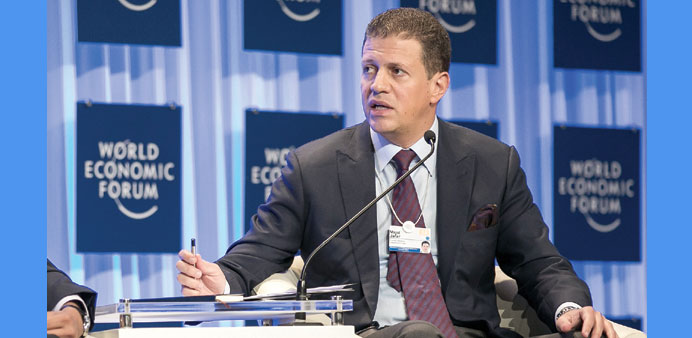Every $1bn invested in the Mena region on infrastructure could create some 26,000 jobs in the GCC (Gulf Cooperation Council) countries, a top executive has said.
Speaking at the World Economic Forum, which recently concluded in Jordan on Saturday, Majid Jafar (pictured), CEO of Crescent Petroleum said such an investment could create in excess of 110,000 jobs in the oil-importing countries or 49,000 jobs in developing oil exporting countries.
Jafar, also a member of the Global Agenda Council on the Middle East and North Africa at the World Economic Forum, highlighted that strategic infrastructure investment plays a critical role in supporting much-needed growth and development in the region in order to tackle the major challenge of youth unemployment.
Speaking alongside former British Prime Minster Gordon Brown and the vice chairman of GE, John Rice on the plenary panel entitled “Infrastructure for Development” on the final day of the Forum’s Mena Summit at the Dead Sea, Jafar described the key drivers of strategic investment into regional infrastructure, with a particular focus on power generation, regulatory challenges, and the role and duty of the region’s private sector companies in partnering with governments in solving the infrastructure challenges of today, and creating the jobs and prosperity for tomorrow.
“The key regional social and economic challenges – especially demand for jobs for young people – require new era of public-private partnership in infrastructure to support the over $100bn needed for investment and maintenance each year in the Mena (Middle East and North Africa) region,” Jafar said.
Annual spending needs of $106bn include $46bn of new investment and $59bn of maintenance, and by meeting the investment needs, according to the World Bank, the Mena region could generate 2.5mn additional jobs.
Seeing infrastructure development as essential to provide the millions of jobs needed in a young and growing region, providing hope, stability and livelihoods, and encouraging entrepreneurship, Jafar stressed the gap in such investments in the Middle East region compared to other developing regions.
“On average across the Mena Region, about 5% of GDP is allocated to infrastructure, whereas the proportion in China is three times higher at 15%. Tackling energy subsidy reform in our region can free up hundreds of billions of dollars for productive investment that will lead to more jobs, higher standards of living, and stronger economic competitiveness for our region’s future,” Jafar added.

